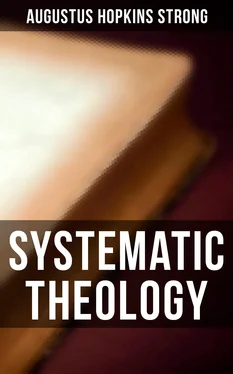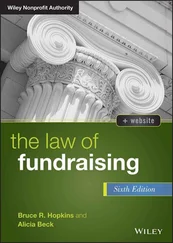I. Definition of the term Attributes.
Table of Contents
The attributes of God are those distinguishing characteristics of the divine nature which are inseparable from the idea of God and which constitute the basis and ground for his various manifestations to his creatures.
We call them attributes, because we are compelled to attribute them to God as fundamental qualities or powers of his being, in order to give rational account of certain constant facts in God's self-revelations.
II. Relation of the divine Attributes to the divine Essence.
Table of Contents
1. The attributes have an objective existence. They are not mere names for human conceptions of God—conceptions which have their only ground in the imperfection of the finite mind. They are qualities objectively distinguishable from the divine essence and from each other.
The nominalistic notion that God is a being of absolute simplicity, and that in his nature there is no internal distinction of qualities or powers, tends directly to pantheism; denies all reality of the divine perfections; or, if these in any sense still exist, precludes all knowledge of them on the part of finite beings. To say that knowledge and power, eternity and holiness, are identical with the essence of God and with each other, is to deny that we know God at all.
The Scripture declarations of the possibility of knowing God, together with the manifestation of the distinct attributes of his nature, are conclusive against this false notion of the divine simplicity.
Aristotle says well that there is no such thing as a science of the unique, of that which has no analogies or relations. Knowing is distinguishing; what we cannot distinguish from other things we cannot know. Yet a false tendency to regard God as a being of absolute simplicity has come down from mediæval scholasticism, has infected much of the post-reformation theology, and is found even so recently as in Schleiermacher, Rothe, Olshausen, and Ritschl. E. G. Robinson defines the attributes as “our methods of conceiving of God.” But this definition is influenced by the Kantian doctrine of relativity and implies that we cannot know God's essence, that is, the thing-in-itself, God's real being. Bowne, Philosophy of Theism, 141—“This notion of the divine simplicity reduces God to a rigid and lifeless stare. … The One is manifold without being many.”
The divine simplicity is the starting-point of Philo: God is a being absolutely bare of quality. All quality in finite beings has limitation, and no limitation can be predicated of God who is eternal, unchangeable, simple substance, free, self-sufficient, better than the good and the beautiful. To predicate any quality of God would reduce him to the sphere of finite existence. Of him we can only say that he is, not what he is; see art. by Schürer, in Encyc. Brit., 18:761.
Illustrations of this tendency are found in Scotus Erigena: “Deus nescit se quid est, quia non est quid”; and in Occam: The divine attributes are distinguished neither substantially nor logically from each other or from the divine essence; the only distinction is that of names; so Gerhard and Quenstedt. Charnock, the Puritan writer, identifies both knowledge and will with the simple essence of God. Schleiermacher makes all the attributes to be modifications of power or causality; in his system God and world = the “natura naturans” and “natura naturata” of Spinoza. There is no distinction of attributes and no succession of acts in God, and therefore no real personality or even spiritual being; see Pfleiderer, Prot. Theol. seit Kant, 110. Schleiermacher said: “My God is the Universe.” God is causative force. Eternity, omniscience and holiness are simply aspects of causality. Rothe, on the other hand, makes omniscience to be the all-comprehending principle of the divine nature; and Olshausen, on John 1:1 , in a similar manner attempts to prove that the Word of God must have objective and substantial being, by assuming that knowing = willing; whence it would seem to follow that, since God wills all that he knows, he must will moral evil. Bushnell and others identify righteousness in God with benevolence, and therefore cannot see that any atonement needs to be made to God. Ritschl also holds that love is the fundamental divine attribute, and that omnipotence and even personality are simply modifications of love; see Mead, Ritschl's Place in the History of Doctrine, 8. Herbert Spencer only carries the principle further when he concludes God to be simple unknowable force.
But to call God everything is the same as to call him nothing. With Dorner, we say that “definition is no limitation.” As we rise in the scale of creation from the mere jelly-sac to man, the homogeneous becomes the heterogeneous, there is differentiation of functions, complexity increases. We infer that God, the highest of all, instead of being simple force, is infinitely complex, that he has an infinite variety of attributes and powers. Tennyson, Palace of Art (lines omitted in the later editions): “All nature widens upward: evermore The simpler essence lower lies: More complex is more perfect, owning more Discourse, more widely wise.”
Jer. 10:10 —God is “the living God” ; John 5:26 —he “hath life in himself” —unsearchable riches of positive attributes; John 17:23—“thou lovedst me” —manifoldness in unity. This complexity in God is the ground of blessedness for him and of progress for us: 1 Tim. 1:11—“the blessed God” ; Jer. 9:23, 24—“let him glory in this, that he knoweth me.” The complex nature of God permits anger at the sinner and compassion for him at the same moment: Ps. 7:11—“a God that hath indignation every day” ; John 3:16—“God so loved the world” ; Ps. 85:10, 11—“mercy and truth are met together.” See Julius Müller, Doct. Sin, 2:116 sq.; Schweizer, Glaubenslehre, 1:229–235; Thomasius, Christi Person und Werk, 1:43, 50; Martensen, Dogmatics, 91—“If God were the simple One, τὸ ἁπλῶς ἕν, the mystic abyss in which every form of determination were extinguished, there would be nothing in the Unity to be known.” Hence “nominalism is incompatible with the idea of revelation. We teach, with realism, that the attributes of God are objective determinations in his revelation and as such are rooted in his inmost essence.”
2. The attributes inhere in the divine essence. They are not separate existences. They are attributes of God.
While we oppose the nominalistic view which holds them to be mere names with which, by the necessity of our thinking, we clothe the one simple divine essence, we need equally to avoid the opposite realistic extreme of making them separate parts of a composite God.
We cannot conceive of attributes except as belonging to an underlying essence which furnishes their ground of unity. In representing God as a compound of attributes, realism endangers the living unity of the Godhead.
Notice the analogous necessity of attributing the properties of matter to an underlying substance, and the phenomena of thought to an underlying spiritual essence; else matter is reduced to mere force, and mind, to mere sensation—in short, all things are swallowed up in a vast idealism. The purely realistic explanation of the attributes tends to low and polytheistic conceptions of God. The mythology of Greece was the result of personifying the divine attributes. The nomina were turned into numina, as Max Müller says; see Taylor, Nature on the Basis of Realism, 293. Instance also Christmas Evans's sermon describing a Council in the Godhead, in which the attributes of Justice, Mercy, Wisdom, and Power argue with one another. Robert Hall called Christmas Evans “the one-eyed orator of Anglesey,” but added that his one eye could “light an army through a wilderness”; see Joseph Cross, Life and Sermons of Christmas Evans, 112–116; David Rhys Stephen, Memoirs of Christmas Evans, 168–176. We must remember that “Realism may so exalt the attributes that no personal subject is left to constitute the ground of unity. Looking upon Personality as anthropomorphism, it falls into a worse personification, that of omnipotence, holiness, benevolence, which are mere blind thoughts, unless there is one who is the Omnipotent, the Holy, the Good.” See Luthardt, Compendium der Dogmatik, 70.
Читать дальше












